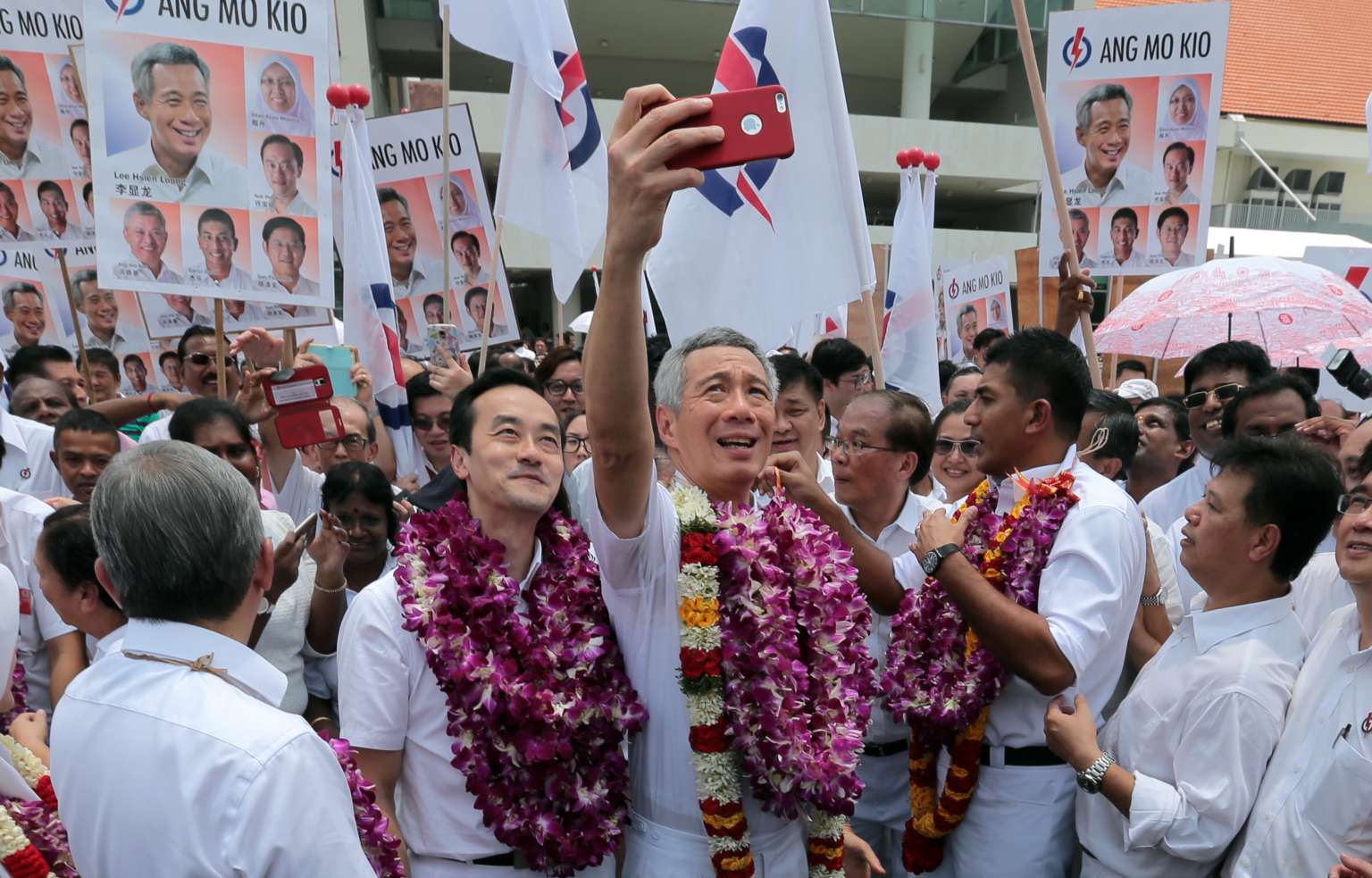GE2015: Social media use was high, but not as decisive for voters, IPS survey on media use finds
Sign up now: Get ST's newsletters delivered to your inbox

Prime Minister Lee Hsien Loong taking a selfie with his Ang Mo Kio GRC team at Raffles Institution on Sept 1, 2015.
PHOTO: THE NEW PAPER
Rachel Au-Yong
Follow topic:
SINGAPORE - Candidates' Facebook posts and Instagram photos may have been key talking points during the recent general election, but social media did not play such a decisive role, a survey by the Institute of Policy Studies (IPS) on Internet and media use during GE2015 suggests.
IPS research fellow Carol Soon, who studies new media, said 79 per cent of the 2,000 citizens of voting age surveyed used social media to some extent.
But hardly anyone did so in isolation, said Dr Soon, who presented the survey findings at IPS' post-election conference on Wednesday (Nov 4).
She cited three reasons why GE2015 was, like GE2011, not a "social media election".
One, almost half of those surveyed - 47.3 per cent - had made up their minds on who to vote even before Nomination Day. "This means that people don't necessarily change their minds going online," said Dr Soon.
Two, mainstream media played a bigger role during the election. An overwhelming majority of social media users - 98.5 per cent - also relied on traditional media sources like TV, print newspapers and online websites of Singapore's mainstream media outlets.
Dr Soon said this "shows that social media users had a relatively varied media diet, and suggests that they are more critical and discerning than they were thought to be."
Interestingly, she said, mainstream media sources were also trusted more by social media users when compared to non-users.
TV, print newspapers and radio, including their websites, were the top three most-trusted sources for election news.
Also, seven in 10 social media users said they found local newspapers and their websites moderately to very trustworthy, compared to about six in 10 who did not use social media.
Three, online participation was generally low, especially for activities that required more effort or time, such as starting a discussion thread or commenting on a video or Facebook post.
But while social media was unlikely to have influenced the election results significantly, other clearer trends emerged among such users.
For one, social media users were more interested in election issues compared to non-users: They talked more about the election, and tended to be more optimistic about whether the Government would respond to the needs of the citizens should they demand for change.
However, they were also more divided in whether they thought Singapore could have a powerful leader who runs the country as he sees fit. Only 18 per cent were neutral about this, compared to about 31 per cent non-users.
Dr Soon said this suggests that cyberspace is conducive for "echo chambers", as people turn to the Internet to reinforce existing ideals they have.
And even though participation in offline activities - like attending rallies and buying campaign-related products - was generally low, social media users were more likely to participate in them compared to non-users. For example, 27.2 per cent of social media users attended at least one rally, three times more than non-users.
Dr Soon added that while social media was widely expected to shape the election results, it did not exist in a vacuum.
"It's not just about how many people go online or use social media. What they do there is what matters. They must feel compelled to use social media to sway minds and move bodies (for it to have an impact)," she said.


